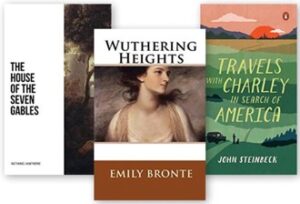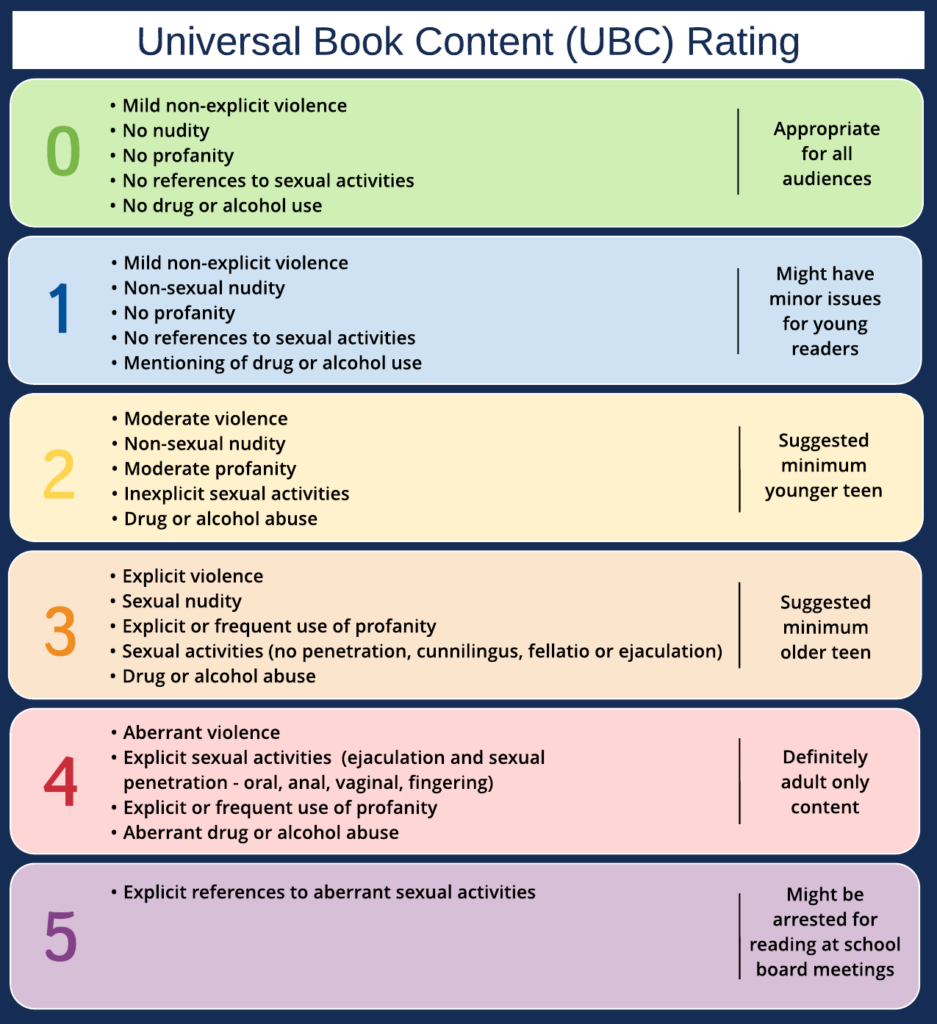myPerspectives-SAVVAS Curriculum
The English Language Arts Curriculum being used in Grades 6-12 in Williamson County Schools.
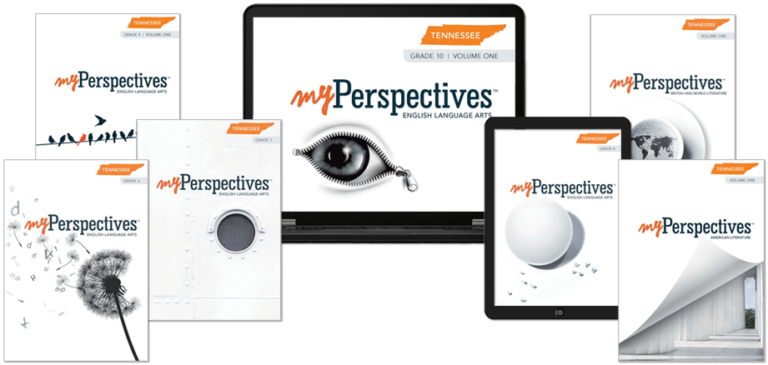
Background Knowledge
myPerspectives is the current English Language Arts curriculum taught in Williamson County Schools, for Grades 6-12. myPerspectives is a Savvas Learning Program.
-In Williamson County, the ELA school year is broken up into Units, with each Unit lasting between 4-5 weeks. The Units are centered around specific “Essential Questions.” Grades 6-8 have 5 distinct units and 9-12 have 6 distinct Units.
-The “Essential Questions” is covered using both whole class learning and small group learning that is focused on completing a student written Performance-Based Essay. Media, blogs, films, multimedia, debates, and graphic novels and, “Trade Books,” are used over the course of each Unit.
Trade Books
Teachers can choose to add, “Trade Books,” into their Unit lessons. These, “Trade Books,” are aligned with each of the Essential Questions. Teachers are not required to use these books, nor are they restricted to the books, on the myPerspectives list.
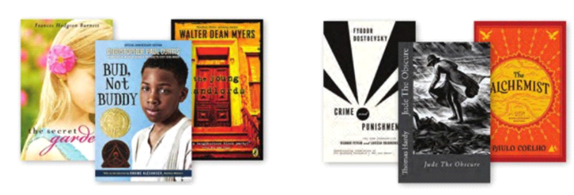
M4LWC Content Consideration Deep Dive Team
Our “Current” objective is to provide parents with a brief summary of each of these “Trade-Book” suggested by myPerspectives. Along with the brief summary parents will have access to a detailed list of possible issue within the novel with page numbers noted. So when your child’s 8th Grade teacher mentions they are about to start reading “Ender’s Game by Orson Scott Card , you will be able to find information regarding said book. You will also be able to view other books available to choose from that go along with the Essential Question. Our aim is to give you the parent some insight and input into the books your children will be reading over the course of the school year.

Essential Questions & their trade books /aligned novels

Grade 6
Unit 1: Childhood: What are some of the challenges and triumphs of growing up?
- The Secret Garden by Frances Hodgson Burnett
- Bud, Not Buddy by Christopher Paul Curtis
- The Young Landlords by Walter Dean Myer
Unit 2: Animal Allies: How can people and animals relate to each other?
- The Jungle Book by Rudyard Kipling
- Where the Red Fern Grows by Wilson Rawls
- Black Beauty by Anna Sewel
Unit 3: Modern Technology: How is modern technology helpful and harmful to society?
- A Wrinkle in Time by Madeleine L’Engle
- Anything but Typical by Nora Raleigh Baskin
- My Side of the Mountain by Jean Craighead George
Unit 4: Imagination: Where can imagination lead?
- Charlie and the Chocolate Factory by Roald Dahl
- The Sword and the Circle by Rosemary Sutcliffe
- Watership Down by Richard Adams
Unit 5: Exploration: What drives people to explore?
- Around the World in 80 Days by Jules Verne
- The House of Dies Drear by Virginia Hamilton
- Maniac Magee by Jerry Spinelli
Grade 6
Grade 6 Unit 1: Childhood ESSENTIAL QUESTION: What
are some of the challenges and triumphs of growing up?
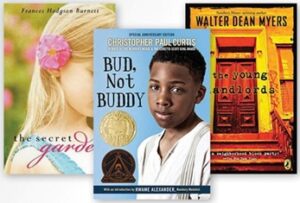
Grade 6 Unit 2: Animal Allies ESSENTIAL QUESTION: How
can people and animals relate to each other?
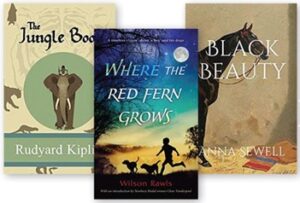
Grade 6 Unit 3: Modern Technology ESSENTIAL QUESTION:
How is modern technology helpful and harmful to society?
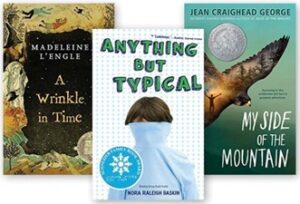
Grade 6 Unit 4: Imagination ESSENTIAL QUESTION: Where
can imagination lead?
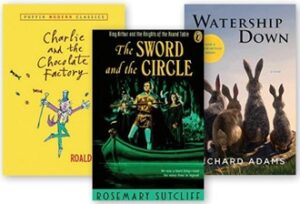
Grade 6 Unit 5: Exploration ESSENTIAL QUESTION: What
drives people to explore?
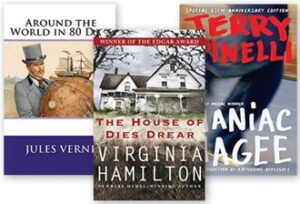
Grade 7
Grade 7 Unit 1: Generations
ESSENTIAL QUESTION: What can one generation learn
from another?
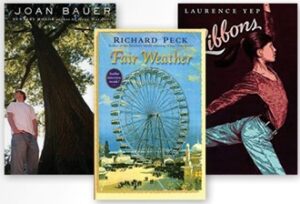
Grade 7 Unit 2: A Starry Home ESSENTIAL QUESTION:
Should we make a home in space? 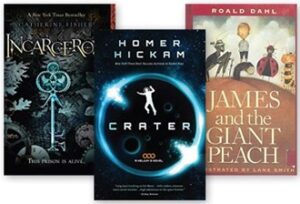
Grade 7 Unit 3: Turning Points ESSENTIAL QUESTION:
What can cause a sudden change in someone’s life?
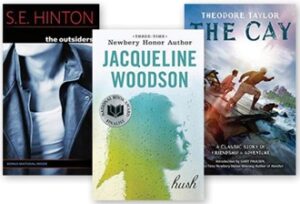
Grade 7 Unit 4: People and the Planet ESSENTIAL QUESTION: What effects do people have on the environment?
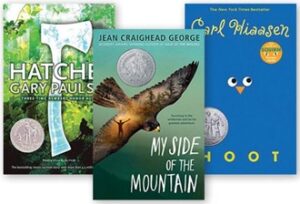
Grade 7 Unit 5: Facing Adversity ESSENTIAL QUESTION: How do we overcome obstacles?
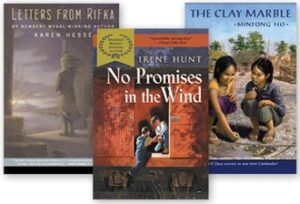
Grade 8
Grade 8 Unit 1: Rites of Passage ESSENTIAL QUESTION: What are some milestones on the path to growing up?
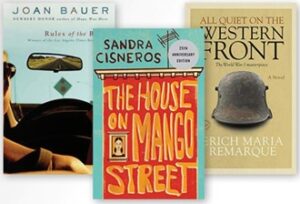
Grade 8 Unit 2: The Holocaust ESSENTIAL QUESTION: How do we remember the past?
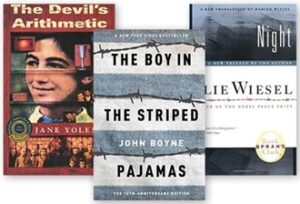
Grade 8 Unit 3: What Matters ESSENTIAL QUESTION: When is it right to take a stand?
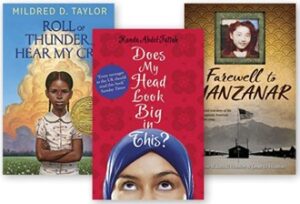
Grade 8 Unit 4: Human Intelligence ESSENTIAL QUESTION: In what different ways can people be intelligent?
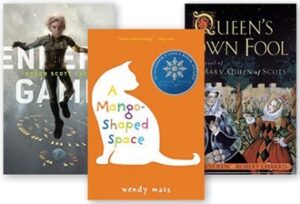
Grade 8 Unit 5: Inventions ESSENTIAL QUESTION: Are inventions realized through inspiration or perspiration?
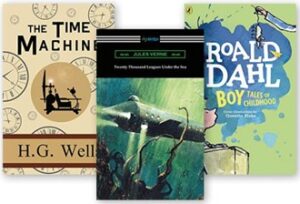
Grade 9
Grade 9 Unit 1: American Voices ESSENTIAL QUESTION:
What does it mean to be “American”?
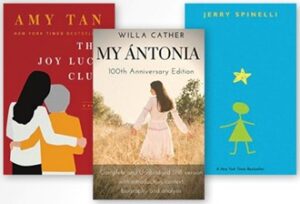
Grade 9 Unit 2: Survival ESSENTIAL QUESTION: What
does it take to survive?
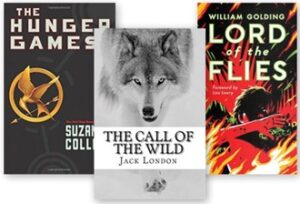
Grade 9 Unit 3: The Literature of Civil Rights
ESSENTIAL QUESTION: How can words inspire change?
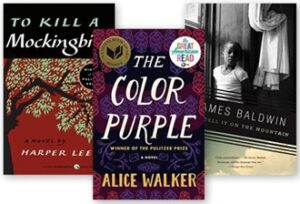
Grade 9 Unit 4: Star-Crossed Romances ESSENTIAL
QUESTION: Do we determine our own destinies?
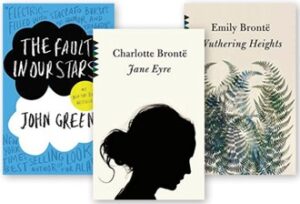
Grade 9 Unit 5: Journeys of Transformation ESSENTIAL
QUESTION: Which matters more, the journey or the destination?
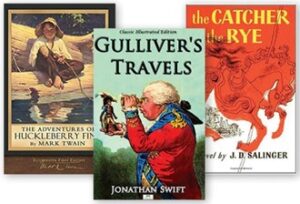
Grade 9 Unit 6: World’s End ESSENTIAL QUESTION: What
do stories about the future say about the present?
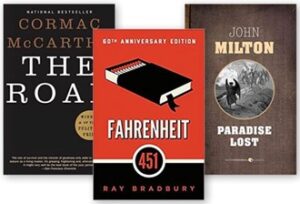
Grade 10
Grade 10 Unit 1: Inside the Nightmare ESSENTIAL
QUESTION: What is the allure of fear?
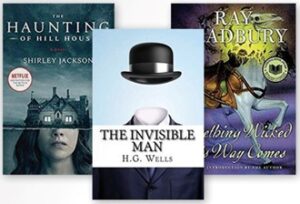
Grade 10 Unit 2: Outsiders and Outcasts ESSENTIAL
QUESTION: Is the experience of being an outsider universal?
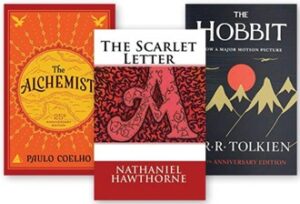
Grade 10 Unit 3: Extending Freedom’s ReachESSENTIAL QUESTION: How can words inspire change?

Grade 10 Oneit 4: All That Glitters ESSENTIAL
QUESTION: Do our possessions define us?
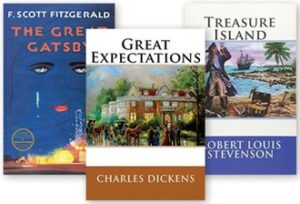
Grade 10 Unit 5: Virtue and Vengeance ESSENTIAL
QUESTION: Is there more merit in vengeance or forgiveness?
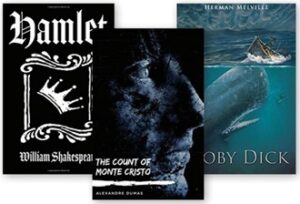
Grade 10 Unit 6: Blindness and Sight ESSENTIAL
QUESTION: What is the difference between seeing and knowing?
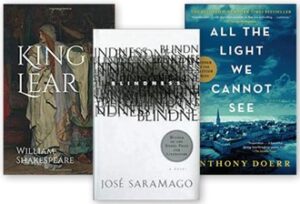
Grade 11
American Literature Unit 1: Writing Freedom:
Words That Shaped a Nation ESSENTIAL QUESTION: What is the meaning of freedom?
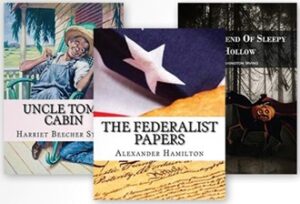
American Literature Unit 2: The Individual and Society:
Fitting In, or Standing Out? ESSENTIAL QUESTION: What role does individualism play in American society?

American Literature Unit 3: Power, Protest, and Change:
A Spirit of Reform ESSENTIAL QUESTION: In what ways does the struggle for freedom change with history?
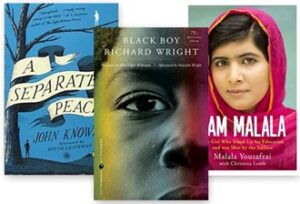
American Literature Unit 4: Grit and Grandeur:
The Importance of Place ESSENTIAL QUESTION: What is the relationship between literature and place?
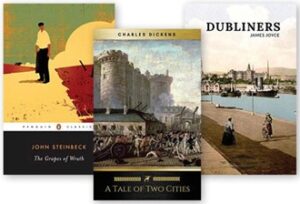
American Literature Unit 5: Facing Our Fears:
Victims and Victors ESSENTIAL QUESTION: How do we respond when challenged by fear?
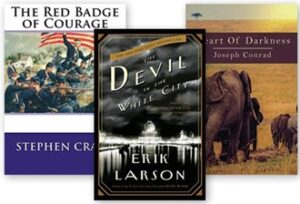
American Literature Unit 6: Ordinary Lives, Extraordinary Tales: The American Short Story ESSENTIAL QUESTION: What do stories reveal about the human condition?
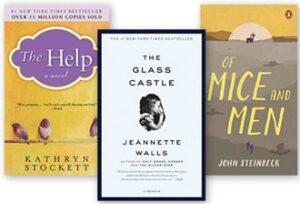
Grade 12
British and World Literature Unit 1: Forging a Hero: Warriors and Leaders ESSENTIAL QUESTION: What makes a hero?
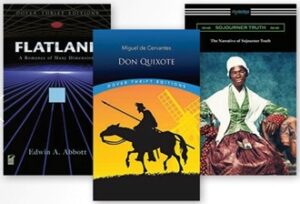
British and World Literature Unit 2: Reflecting on Society: Argument, Satire, and Reform ESSENTIAL QUESTION: How do people come to have different views of society?
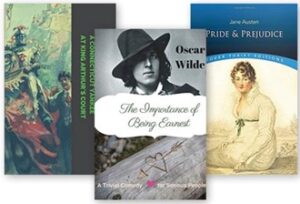
British and World Literature Unit 3: Facing the Future, Confronting the Past: Shakespeare Extended Study ESSENTIAL QUESTION: How do our attitudes towards the past and future shape our actions?
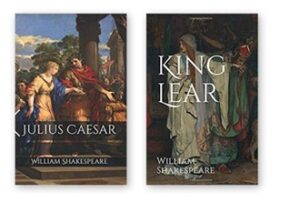
British and World Literature Unit 4: Seeing Things New: Visionaries and Skeptics ESSENTIAL QUESTION: Why are both vision and disillusion necessary?
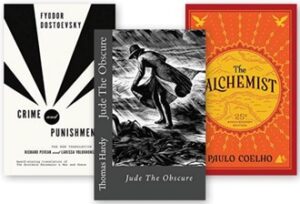
British and World Literature Unit 5: Discovering the Self: Individual, Nature, and Society ESSENTIAL QUESTION: How do we define ourselves?
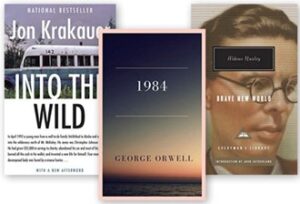
British and World Literature Unit 6: Finding a Home: Nation, Exile, and Dominion ESSENTIAL QUESTION: What does it mean to call a place home?
